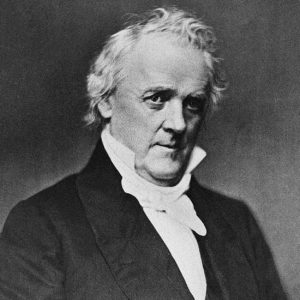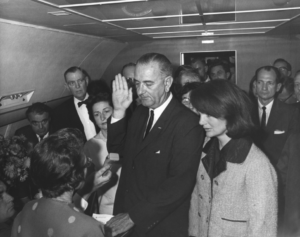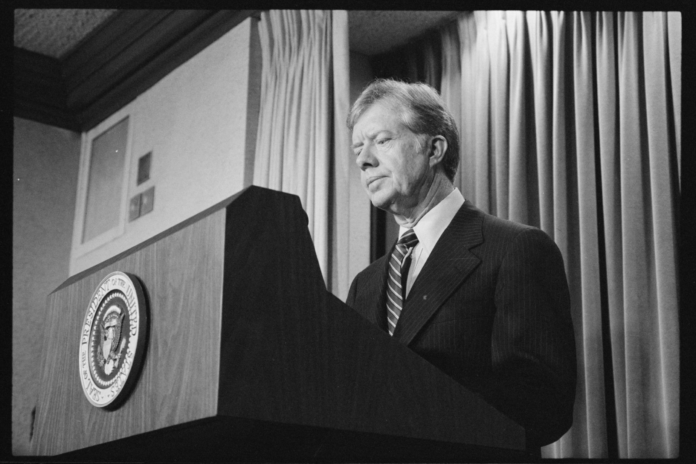On Presidents’ Day 2021, let us remember the greats, yet also recall the three worst chief executives in our country’s proud history.
Jimmy Carter: (1977-1981)
Few would deny Carter’s place in infamy. I will confine myself to his time in office, although on the global stage, the Georgian has been equally detrimental to American ideals the past four decades.
One decision, considered controversial by even his ardent supporters, was the final negotiation of the Panama Canal treaties in 1977. Those treaties, which essentially transferred control of the American-built Canal to Panama, were opposed by a majority of the American public. The treaties transferred a great strategic asset — which tens of thousands died constructing — to a corrupt third-world country.
The main conflict involving our international interests came in Carter’s dealings with the Shah of Iran. Though Carter’s presidency was marked by several major crises, the Iran Hostage Crisis dominated his final year as the 39th president struggled to rescue diplomats and American citizens held hostage in Tehran, paving the way for the rise of Radical Islam.
The Shah had been a strong ally of America since World War II. He was also friendly to the Jews of Israel, an idea subsequently non-existent in Iran for more than four decades.
When the Iranian Revolution broke out in 1979, the Shah was overthrown, and the U.S. did not intervene. In permanent exile, he was refused entry to America by the Carter administration, even on grounds of medical emergency. Nearly a year later, Washington relented and admitted the Shah. Gaining confidence, Iranian militants seized the American embassy in Tehran, taking 52 Americans hostage.
The Shah died a few months later in Egypt, but the hostage crisis put Carter’s misguided policies on display for the world to see. His response was to do nothing at first. Then he attempted a rescue he closely managed, which failed. The redeeming factor in this ordeal was Carter’s crushing defeat by Ronald Reagan in the 1980 presidential election. The hostages were released on January 20, 1981 moments after Reagan was sworn in as the 40th president.
James Buchanan (1857-1861)
Slavery persisted deep into the 19th century, and more than 600,000 brave young American men lost their lives in order to abolish the cruel practice and preserve the Union. Democrat presidents ran America leading up to the beginning of hostilities in April 1861 and the worst among a bad lot was the man who preceded Abraham Lincoln and left the country in ruins, James Buchanan.

Though Buchanan’s predecessor, Franklin Pierce, was nearly as disastrous, during Buchanan’s administration the Union broke apart, and as he departed office, the only Civil War in U.S. history was 39 days away.
The country was divided in the middle of the 19th century over the serious issues of states‘ rights and slavery. Violence was everywhere, with abolitionists murdered in Kansas having their murders avenged by radicals in Virginia, and so on.
Apparently learning nothing from the failures of the 1854 Kansas-Nebraska Act that led to this tipping point, Buchanan kept the status quo, asserting slavery should be a matter for individual states and territories to decide. Southern slaveholders, largely Democrats, approved. His opponent in the 1856 presidential election, John Fremont, the first Republican presidential candidate, argued the federal government should prevent slavery from spreading into the new western territories. Buchanan won the election, although with 19 mostly southern states and 45%, the Pennsylvanian failed to get a popular majority over Fremont and former President Millard Fillmore, candidate from the Know-Nothing party.
Buchanan decided to urge admission of the Kansas territory as a slave state, endorsing a proslavery constitution. In his inaugural address, he even encouraged the Supreme Court’s forthcoming Dred Scott decision, which denied citizenship to black people and declared Congress had no power to keep slavery out of the territories.
Republicans won the House in 1858, but every significant bill they passed fell before Southern votes in the U.S. Senate or a presidential veto. The federal government thus reached a stalemate, and sectional strife forced Democrats into Northern and Southern wings, each nominating its own presidential candidate.
When the Republicans nominated Lincoln, it was a foregone conclusion he would be elected. Buchanan hoped for diplomacy, but secessionist leaders refused compromise and advocated secession. The 15th president sat idle as the situation spiraled out of control, believing that the Constitution did not give him power to act against seceders.
In March 1861, Buchanan retired to his Pennsylvania home, where he died seven years later, leaving his successor to resolve the frightful issue facing the nation.
Lyndon B. Johnson (1963-1969)
I will avoid discussing Johnson’s foreign policy adventures; rather, I will focus on his socio-economic policies, which have lasting pernicious effects. Johnson’s agenda laid the groundwork for urban (and rural) poverty still rampant today. Many contemporary historians consider LBJ a “progressive pioneer” but I see a different story.

Sworn in as our 36th president at Dallas’ Love Field in November 1963, the man who’d never been a mayor or governor was elected to a full term a year later over U.S. Senator Barry Goldwater. The Republican nominee had a good record of supporting civil rights, but the Arizonan opposed certain preferences in bills that became the Civil Rights Act. Goldwater’s vote against it ultimately led to a 44-state triumph for LBJ. Johnson benefited greatly from an expansion in leftist control over much of the press and academia, a process that continues today.
Not remembered in history textbooks was that Republicans proposed anti-lynching legislation for decades, reflecting back to Civil War times when Democrats had been involved in this horrific act. The legislation passed the House but was killed by the Democrat-controlled Senate and finally passed in 1939. A young Texas congressman named Johnson continuously opposed anti-lynching legislation.
- In 1956, Democrats expressed their opposition to the desegregation decision of Brown v. Board of Education in the Southern Manifesto. One hundred members of Congress, all Democrats, signed the document.
- In 1957, Republican President Dwight Eisenhower authored a Civil Rights Bill, hoping to repair damage done to civil rights for nearly a century. Senate Democrats blocked passage of the bill.
But following the JFK assassination:
- Congress passed the Civil Rights Act of 1964, the law originally authored by Eisenhower in 1957. Democrats filibustered the bill. Once the filibuster was overcome, a larger percentage of Republicans voted for passage than did Democrats.
- In 1965, Congress passed, and Johnson signed into law, the Voting Rights Act of 1964. This bill also enjoyed support from a greater percentage of Republicans than Democrats. Now president, Johnson gets credit for legislation authored by Republicans designed to undo a century of damage by Democrats.
At this point, the media and academia began using information control to engineer a massive electoral shift. Blacks, once exclusively Republican, began voting Democrat in numbers greater than 90 percent.
The actual consequences of Johnson’s “Great Society” discouraged initiative, encouraged a psychology of victimhood, while creating a permanent dependency class.
Until 1965, almost 80% of black households had both a mother and a father in the home, on par with white families. After 1965 (the year Democrats stopped oppressing blacks and started “helping” them with a “War on Poverty”), the presence of black fathers in the home began a precipitous decline; today, the American black out-of-wedlock birthrate is over 70% and it’s growing across all races.
Unlike the New Deal, the Great Society emerged in a period of prosperity. Johnson presented his goals in a speech at the uber-liberal University of Michigan in 1964. Having little faith in their common man, the do-gooders loved its “demand to end poverty and racial injustice.” Criticism by conservatives of the programs’ ineffectiveness and creation of an underclass of citizens have been proven correct.
For the incalculable damage done by his policies, even ignoring the Vietnam adventure, LBJ goes down as one of our three worst presidents.
Honorable mention to President Woodrow Wilson for his bigotry and aggressive statism, unconstrained by limiting principles; this progressivism was, of course, unsustainable and naively utopian.
I’ll refrain on former Presidents Barack Obama, Donald Trump and the current authoritarian-in-chief, as it takes around two post-presidential decades for complete observations. President George W. Bush’s legacy is only now slowly coming into focus.
While I prefer we celebrate and venerate only the best presidents, it’s worth recapping men who hurt this country while in office.
A.J. Kaufman
A.J. Kaufman is an Alpha News columnist. His work has appeared in the Baltimore Sun, Florida Sun-Sentinel, Indianapolis Star, Israel National News, Orange County Register, St. Cloud Times, Star-Tribune, and across AIM Media Midwest and the Internet. Kaufman previously worked as a school teacher and military historian.










